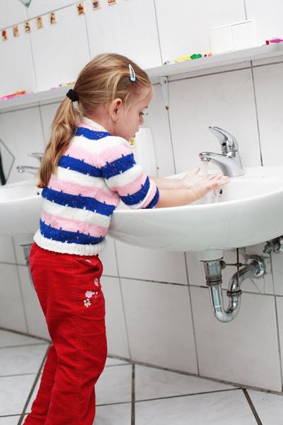 Cleanzine: your weekly cleaning and hygiene industry newsletter 18th April 2024 Issue no. 1110
Cleanzine: your weekly cleaning and hygiene industry newsletter 18th April 2024 Issue no. 1110
Your industry news - first
The original and best - for over 20 years!
We strongly recommend viewing Cleanzine full size in your web browser. Click our masthead above to visit our website version.
Teachers call for more time to teach children about good hand hygiene
 As many as nine out of 10 teachers believe that good hand hygiene routines in primary schools can reduce sickness and absenteeism among staff and pupils, according to a survey commissioned by Kimberly-Clark Professional.
As many as nine out of 10 teachers believe that good hand hygiene routines in primary schools can reduce sickness and absenteeism among staff and pupils, according to a survey commissioned by Kimberly-Clark Professional.
Meanwhile, two thirds of teachers questioned said they would like more time to teach children about good hand hygiene and other life skills, and 54% said they had worried in the past 12 months about absenteeism caused by short term illness and its potential impact on children.
The research, which was conducted by Cogent Research among 300 primary school teachers from across England, indicated high levels of anxiety about the link between hand hygiene and learning. Besides worries about the time pupils take off school through being ill, there was also concern about the impact on teachers' health and the knock-on effect of teacher absence on children's progress.
"We can see that teaching can be a very germy profession!" says Dr Louise Vickerman, Education Manager at Kimberly-Clark Professional. "It's easy to understand why, when teachers are working day in day out in an environment where they are exposed to all the coughs, colds and tummy bugs children commonly pass around. In our research we found that the main concern arising from staff absence though was a lack of continuity, which can affect children's behaviour and learning.
"We also found there was concern about the cost of recruiting supply teachers as a result of staff absence. It can make a big dent in a school's budget, using up money that might otherwise be spent on learning resources and facilities."
The survey found that teachers believed there to be several key germ 'hotspots', with 79% citing children's toilets as the main area of concern. Door handles (70%) and water bottles (54%) were also seen as problem areas.
To address concerns held by both both teachers and pupils, about absence from school caused by sickness, Kimberly-Clark Professional has developed The Healthy Schools Project -a child-friendly programme created to help teachers reinforce positive messages about the benefits of good hand hygiene among youngsters.
The Healthy Schools Project has been carefully designed to engage primary school age children directly and encourage them to take greater responsibility for - and care over, washing their hands, to prevent the spread of common illnesses such as coughs, colds and stomach upsets and thus create a healthier and more productive learning environment for both pupils and teachers.
Available to all schools taking part in the programme, are lesson plans that enable teachers to integrate lessons about hand hygiene seamlessly into the curriculum. The lesson plans have been designed to encourage pupils to take ownership of their own personal and classroom hygiene, and incorporate a rewards programme that acknowledges good behaviour and incentivises pupils to maintain it on an ongoing basis.
Dr Vickerman says: "Hand hygiene is considered one of the most effective measures in reducing the spread of germs and preventing illnesses so anything that can be done to improve hand-washing habits among young children in school is going to have a positive impact. However, we recognise that teachers have a million and one things to think about besides hand hygiene, which is why The Healthy Schools Project has been developed.
24th April 2014







